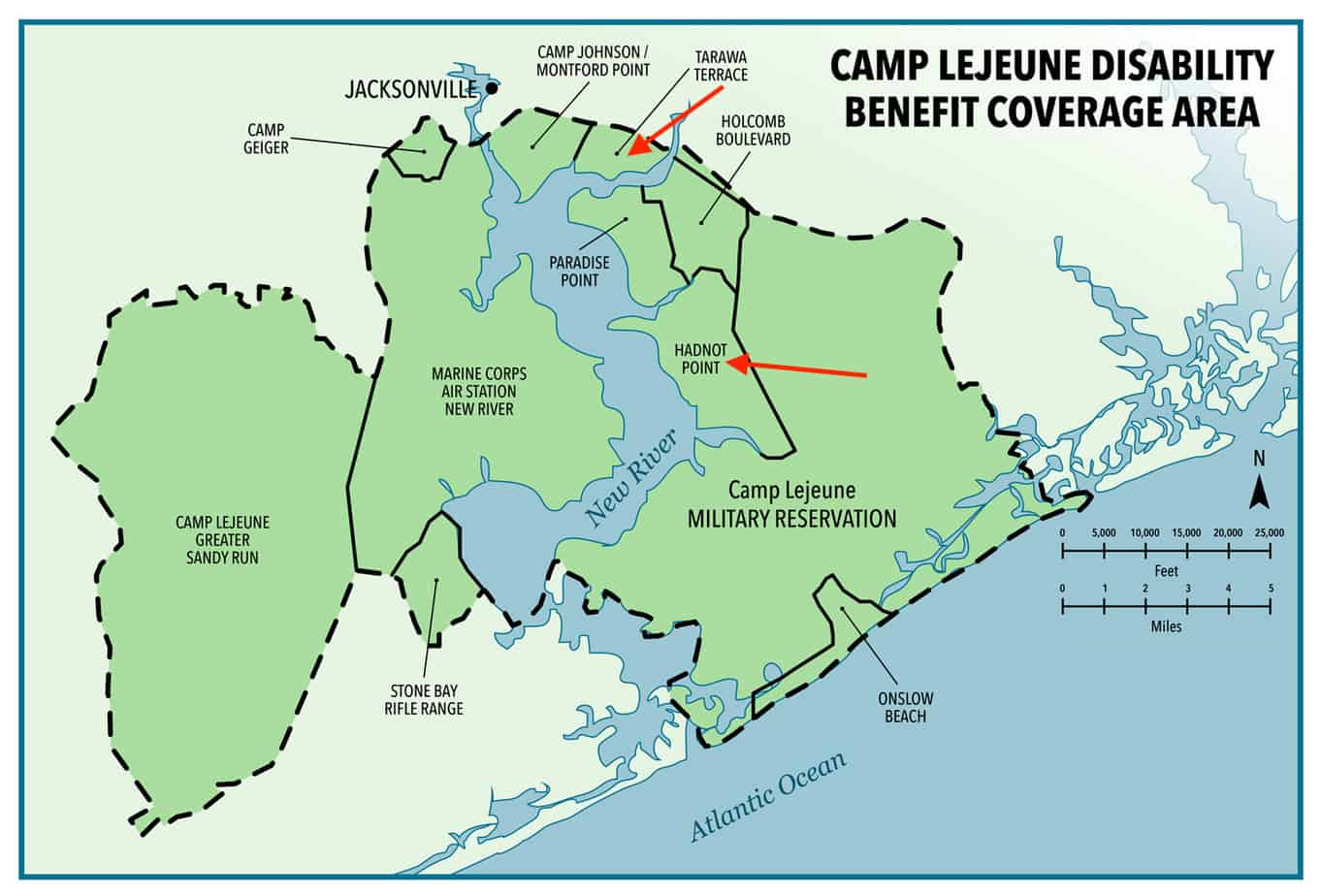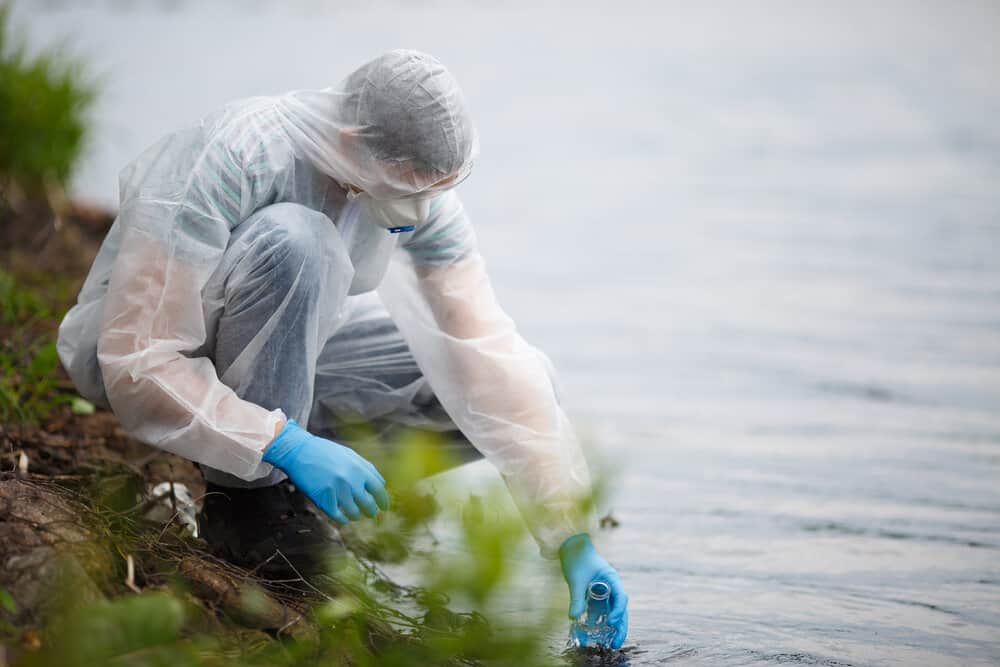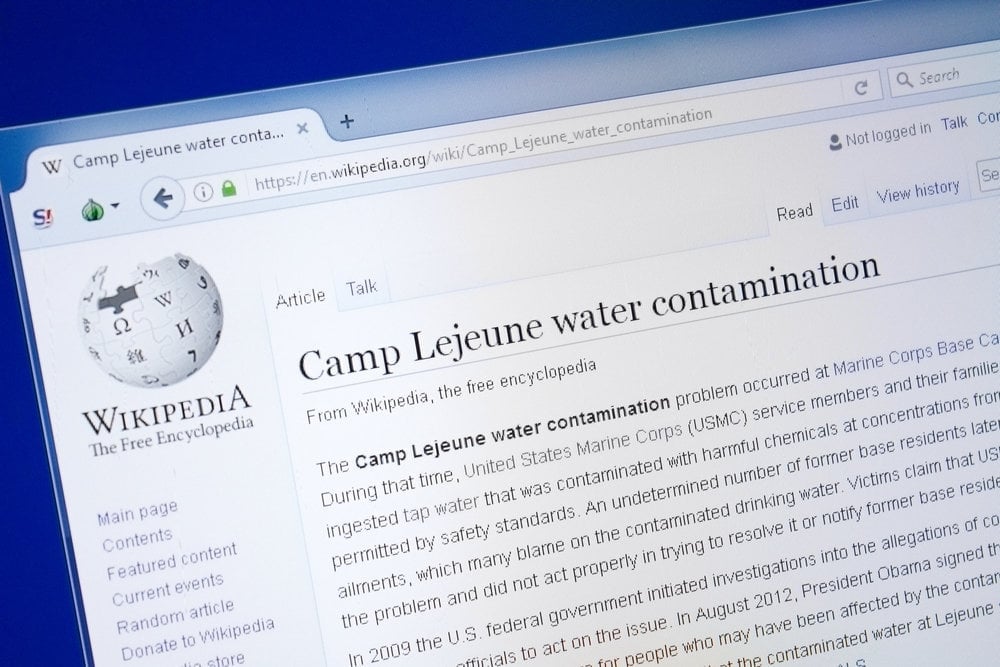Camp Lejeune, a Marine Corps Base in North Carolina, has experienced water contamination issues spanning several decades. Between August 1, 1953, and December 31, 1987, many individuals residing or working at the camp were exposed to polluted water, leading to various health problems. The Camp Lejeune Justice Act of 2022 provides an avenue for affected individuals to seek compensation for damages arising from this environmental disaster.
To file a claim, affected individuals can choose between two options: filing individually or hiring a lawyer to file on their behalf. The Office of the Judge Advocate General (JAG) of the Navy’s Tort Claims Unit (TCU) is responsible for receiving and processing claims related to the Camp Lejeune water contamination. Claimants must provide accurate personal information, details about their exposure, and the basis for their claim when submitting the necessary forms.
As awareness about the Camp Lejeune water contamination continues to grow, understanding the process of filing a claim serves as an essential resource for those seeking compensation. Affected individuals and their families must stay informed and take appropriate action to receive the potential benefits and support they deserve in response to the adverse health effects caused by this long-standing issue.

Understanding Camp Lejeune Water Contamination
Camp Lejeune, a Marine Corps base in North Carolina, faced extensive water contamination between August 1, 1953, and December 31, 1987, exposing thousands of military personnel and their families to dangerous chemicals and toxic substances.
Contaminated Water Sources
The contamination at Camp Lejeune originated from various sources, including leaking storage tanks, industrial spills, and waste disposal sites. Contaminated groundwater was used for drinking, cooking, and other everyday activities, putting everyone on base at risk of exposure.
Chemicals and Toxic Substances
The primary contaminants identified at Camp Lejeune were volatile organic compounds (VOCs) found in the base’s water supply. These included:
- Trichloroethylene (TCE): An industrial solvent used for cleaning metal parts and degreasing.
- Perchloroethylene (PCE): A widely-used dry-cleaning compound.
- Benzene: A known carcinogen that was present in gasoline and other petroleum products.
- Vinyl chloride: A chemical used in the production of PVC, it can form when other contaminants break down.
These harmful chemicals were found in substantially higher concentrations than EPA standards at the time, posing significant health risks.
Health Conditions and Diseases
The exposure to contaminated water at Camp Lejeune has been linked to various health conditions and diseases. Some of the most commonly reported include:
- Cancer: Camp Lejeune residents may face an increased risk of cancers such as leukemia, bladder cancer, kidney cancer, and liver cancer, among others.
- Liver disease: Long-term exposure to toxic contaminants may result in liver damage and disease.
- Neurological disorders: Some VOCs have been linked to neurological conditions such as Parkinson’s disease.
- Reproductive issues: Pregnant women exposed to the contaminants may have faced an increased risk of miscarriages, stillbirths, or birth defects.
- Respiratory problems: VOCs present in the air and water can cause or exacerbate respiratory issues.
Veterans (alive or deceased) and their families who were exposed to contaminated water at Camp Lejeune are encouraged to seek assistance and file claims for any resulting health issues.
Eligibility for Compensation
Affected Individuals and Family Members
Eligibility for compensation applies to those who served at the Marine Corps Base Camp Lejeune or Marine Corps Air Station (MCAS) New River, North Carolina, between August 1, 1953, and December 31,1987. Family members of these individuals may also be eligible for healthcare benefits associated with Camp Lejeune water contamination.
Covered Health Conditions
The Department of Veterans Affairs (VA) provides disability compensation and healthcare benefits for various covered health conditions related to exposure to contaminated water at Camp Lejeune. Some of these conditions include:
- Hepatic Steatosis
- Infertility
- Leukemia
- Lung Cancer
- Esophageal Cancer
- Breast Cancer
- Lymphoma
- Parkinson’s Disease
These health conditions might have arisen due to the development of certain diseases as a result of exposure to hazardous materials in the water supply.
Presumptive Conditions
In addition to the covered health conditions, the VA has established a presumption of service connection for eight diseases related to contaminants present in the water supply at Camp Lejeune. These presumptive conditions include:
- Leukemia
- Aplastic Anemia and other Myelodysplastic Syndromes
- Bladder Cancer
- Kidney Cancer
- Liver Cancer
- Non-Hodgkin’s Lymphoma
- Parkinson’s Disease
- Multiple Myeloma
Affected individuals, including active duty, reserve, and National Guard members who served at Camp Lejeune or MCAS New River, can file a claim for disability compensation for these presumptive conditions. Veterans are encouraged to consult with Veterans Service Organizations, which can offer assistance in filing disability compensation claims at no cost.

The Camp Lejeune Justice Act and PACT Act
Provisions for Victims
The Camp Lejeune Justice Act is a part of the Honoring Our Promise to Address Comprehensive Toxics (PACT) Act, signed into law on August 10, 2022. This legislation enables individuals who have been harmed by the contaminated water at Camp Lejeune in Jacksonville, North Carolina, to file lawsuits for appropriate relief. Victims include both military service members and civilians who lived, worked, or were present at Camp Lejeune during the contamination period.
Eligibility Requirements
To be eligible for filing a claim under the Camp Lejeune Justice Act of 2022, claimants must:
- Have been exposed to the contaminated water at Camp Lejeune between August 1, 1953, and December 31, 1987
- Have a current disability or medical condition resulting from this exposure
- Submit a completed claim form to the Department of the Navy within the specified time frame (two years from the enactment of the Honoring Our PACT Act)
Available Benefits
The benefits available under the Camp Lejeune Justice Act are intended to provide compensation and relief for those who have suffered harm due to the water contamination. These benefits may include:
- Financial compensation for medical expenses, lost wages, and other damages resulting from the exposure
- Access to healthcare and support services from the Department of Veterans Affairs for eligible veterans and their family members
- Legal remedies, such as the ability to pursue a lawsuit against the United States District Court for harm caused by the contamination
To file a claim under the Camp Lejeune Justice Act, claimants must submit a completed CLJA claims form to the following address:
Department of the Navy Office of the Judge Advocate General Tort Claims Unit Norfolk Attention - Camp Lejeune Claims 9620 Maryland Avenue, Suite 205 Norfolk, VA 23511-2949
For additional information on completing the CLJA claims form and navigating the claims process, claimants can reach out to the Department of Veterans Affairs and seek legal assistance and representation when necessary.
How to File a Claim
Gathering Necessary Documentation
When filing a claim for Camp Lejeune water contamination, gather relevant documentation to support your case. This includes medical records that demonstrate your health condition and any connection to toxic substances like TCE and PCE.
You should also collect military records that prove your presence at Camp Lejeune for at least 30 days between August 1, 1953, and December 31, 1987. If you are filing on behalf of a loved one, gather documentation that links their health issues and time at the base. This is essential to substantiate your claims for disability benefits, medical expenses, and lost wages.
Completing a Claim Form
After collecting the necessary documentation, complete a Camp Lejeune Justice Act (CLJA) claims form. This form will ask for your contact information, your relationship to Camp Lejeune, and details about the health condition related to the water contamination.
Fill in every section with accurate information, as this form will play a crucial part in determining your eligibility for compensation. If needed, consult with a VA-accredited attorney or Veterans Affairs representative to help you navigate the process.
Submitting the Claim
Once the claim form is complete, submit it via U.S. Mail or another carrier to the following address:
Department of the Navy Office of the Judge Advocate General Tort Claims Unit Norfolk Attention - Camp Lejeune Claims 9620 Maryland Avenue, Suite 205 Norfolk, VA 23511-2949
In some cases, it may be beneficial to work with a law firm that specializes in Camp Lejeune water contamination claims. They can help you with gathering evidence, completing the claim form, and representing you if your claim progresses to a lawsuit. Remember to keep a copy of your claim form and supporting documentation for your records. If your claim is denied, you will have the option to appeal the decision.

Seeking Legal Assistance
Finding a Qualified Attorney
When seeking legal assistance for a Camp Lejeune water contamination claim, it is essential to find a qualified attorney experienced in handling such cases. A knowledgeable lawyer can help navigate the complex court system and ensure the best possible outcome for the claim. They can assist in gathering the necessary documentation, such as proving residency or employment at Camp Lejeune, North Carolina, during the relevant time frame (between August 1, 1953, and December 31, 1987).
It may be helpful to search for attorneys located in or near Jacksonville, North Carolina, as they may be more familiar with cases involving Marine Corps Base Camp Lejeune. Additionally, consulting with attorneys who specialize in VA disability claims or environmental contamination cases could be beneficial.
Calculating Potential Damages
A major aspect of pursuing a Camp Lejeune water contamination claim is calculating potential damages. Victims of the water contamination may have developed health issues, such as kidney cancer, bladder cancer, liver cancer, multiple myeloma, or scleroderma. A qualified attorney can help assess the medical expenses, pain and suffering, and other damages that result from these illnesses.
When calculating damages, an attorney will consider:
- Medical expenses: This includes the cost of treatment for the illnesses linked to the water contamination, such as surgeries, medications, and ongoing care.
- Pain and suffering: Experienced attorneys can help evaluate the physical and emotional distress caused by the illnesses and their impact on the victim’s quality of life.
- Lost wages and earning capacity: If the illnesses related to the water contamination have led to lost wages or reduced the victim’s ability to earn income, these losses should be included in the claim.
Under the Camp Lejeune Justice Act, victims have a two-year window starting from August 10, 2022, to file lawsuits against the federal government. Claims should be submitted to the Office of the Judge Advocate General, specifically the Tort Claims Unit Norfolk, for processing.
In summary, seeking legal assistance from a qualified attorney experienced in Camp Lejeune water contamination cases is crucial for navigating the complex legal process and calculating potential damages. Such expertise can significantly impact the success of the claim and the compensation awarded to the victims.
Frequently Asked Questions
How do I file a claim for Camp Lejeune water contamination?
To file a claim under the Camp Lejeune Justice Act (CLJA), submit a completed CLJA claims form via U.S. Mail or another carrier to the following address:
Department of the Navy Office of the Judge Advocate General Tort Claims Unit Norfolk Attention – Camp Lejeune Claims 9620 Maryland Avenue, Suite 205 Norfolk, VA 23511-2949
For additional information on completing the CLJA claims form, contact the Navy Judge Advocate General’s office at 1-202-685-4600.
Who is eligible to file a claim?
Individuals who resided, worked, or were otherwise exposed (including in utero exposure) to water at Camp Lejeune for at least 30 days between August 1, 1953, and December 31, 1987, can file a claim.
What benefits could I receive?
Those who served at Camp Lejeune or Marine Corps Air Station (MCAS) New River, North Carolina, between August 1, 1953, and December 31, 1987, may be eligible for disability and health care benefits.
Are there any class action lawsuits about Camp Lejeune?
The Campl Lejeune lawsuits are individual personal injury claims, not a class action lawsuit. The USMC is accepting individual injury claims against the government based on the water contamination at Camp Lejeune.


